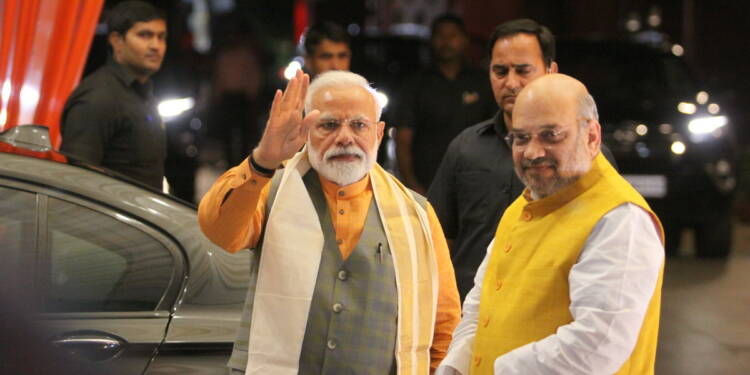On December 11, 2019, the Modi government passed Citizenship Amendment Bill (CAB) – one of the most contentious bills ever, in both houses of the parliament, converting it into Citizenship Amendment Act (CAA). However, the government has not notified its implementation yet and this made many ‘hopefuls’ think that it has been buried under the protests and Delhi riots. But, the latest reports, which suggest that the implementation could be notified in January, will be like melted iron in the ear of ‘hopefuls’.
“We are hopeful that the process of granting citizenship to refugees under the CAA will begin from January next year,” said BJP National General Secretary Party Observer for West Bengal Kailash Vijayvargiya.
“Most probably from January, the process of granting citizenship to all the people who are refugees will be started by the BJP government. These people have come from Bangladesh, Afghanistan and Pakistan after facing religious persecution. They have sought refuge in our country. The BJP government will grant citizenship to all such people. The Centre has honest intentions to grant citizenship to persecuted refugees who have come to India from neighbouring countries,” he added.
CAA is a very important issue in West Bengal and the Hindu community of the state rallies behind BJP in support of the bill. Millions of persecuted Hindus from Bangladesh, who migrated to West Bengal, are yet to get citizenship. The Hindus from the state of West Bengal would probably be the biggest beneficiary of the bill, as many of them- especially those from Dalit community or poor background- are yet to get Indian citizenship.
West Bengal and Assam will go into Assembly Elections by April next year and BJP will implement the law before that. Many communities which are categorized as Scheduled Castes, especially the Matua community which constitutes a sizable chunk of population in Southern West Bengal, rallies behind the CAA despite its popularity among Bengali intelligentsia.
The reason behind the support of CAA by this community which has been marginalized under the TMC and Communist rule is that many of them trace their ancestry to East Bengal. And, they have been ill-treated by the Communist government when they migrated to West Bengal amid the persecution of Hindus during the 1970s.
Mamata Banerjee is caught in the dilemma because if she supports CAA then she will lose Muslim voters who constitute around one-third of the state’s total voters. And, if she opposes CAA, the Dalit community of West Bengal, which already voted in significant numbers for BJP in 2019 General Elections, will completely boycott her.
Mamata Banerjee is trying to placate Dalit community through “patta land” but CAA is closer to the heart of the community than land, and Banerjee is not ready to support the Citizenship bill because she has to protect her Muslim community votes. “We’ll see to the patta issue later but Mamata Banerjee should first clarify if she supports CAA or not. She’s treating Matuas as beggars. We’re not begging. We have one small demand: CAA,” said Shantanu Thakur, Joint President of All India Matua Mahasangha.
The implementation of CAA is going to hurt the left-liberals, secularists, communists and others on the other side of the political spectrum because, despite their tooth and nail opposition and rioting, the act is going to be implemented in the country very soon. Moreover, this has become a rallying point for Hindus of West Bengal and will ensure the ouster of Mamata Banerjee, which is going to be a double whammy for the people on the other side.
























